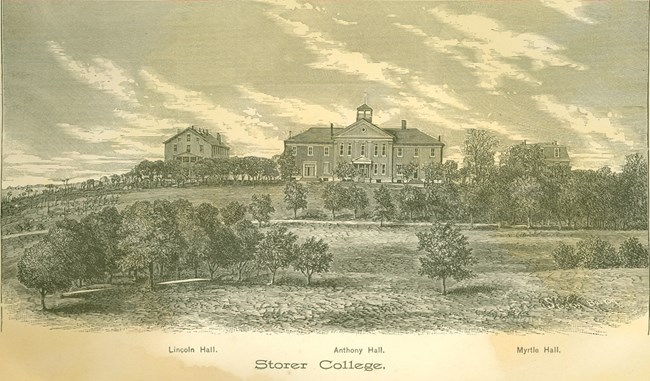Part of a series of articles titled Natural History in the National Capital Area.
Article
Dr. Madison Spencer Briscoe, Storer College, and Harper’s Ferry National Historic Park

Founded in Harper’s Ferry, West Virginia on October 2, 1867, Storer College was a school for freedmen after the Civil War. In its 90 years of existence, the school evolved, serving primary and secondary school students as well as college students. It was one of the first degree-granting four-year colleges that trained African American teachers during Reconstruction. Over 7,000 students attended Storer College.
Madison Spencer Briscoe graduated from Storer College in 1924, before earning a Bachelor of Science at Lincoln University in 1926 and a Master of Science at Columbia University in 1930.
Briscoe returned to Storer College as a faculty member from 1930 through 1934, where he taught both high school and college courses. He served as a professor of biology, taught laboratory sessions, and developed the college’s pre-medical curriculum. In 1941 Briscoe left Storer College to teach at Howard University and begin a PhD. He soon answered the call for experts in parasitology and tropical diseases as part of the U.S. efforts in World War II. Briscoe rose to US Army Captain of the Sanitary Corps and was promoted to Commanding Officer of the 16th Malaria Survey Detachment of the US Army in Libya.
After the war, Briscoe completed his PhD in parasitology at Catholic University in 1950. In 1951, he returned to Harpers Ferry. While Briscoe’s research in insect vectors, leprosy, and other parasitic diseases continued to take him to far-flung places, he remained involved in Storer College until it closed in 1955. The surviving Storer College campus later was acquired by the NPS in 1962.
Although best known for his contributions to the fields of entomology and parasitology, Briscoe’s gastropod [mollusk] teaching collection from Storer College was acquired by Harper’s Ferry National Historical Park in 2011. His collection is composed of specimens he collected as well as those he acquired from others. Mollusk specimens include terrestrial species collected in diverse locations such as the Florida Keys, Cuba, Caicos Island, Bahamas, Mexico City, Mexico, Padua, Italy, and Tahiti, French Polynesia. His collection provides an insight into the breadth of Dr. Briscoe’s instruction which prepared students for the world beyond Storer College.
Last updated: May 20, 2021
